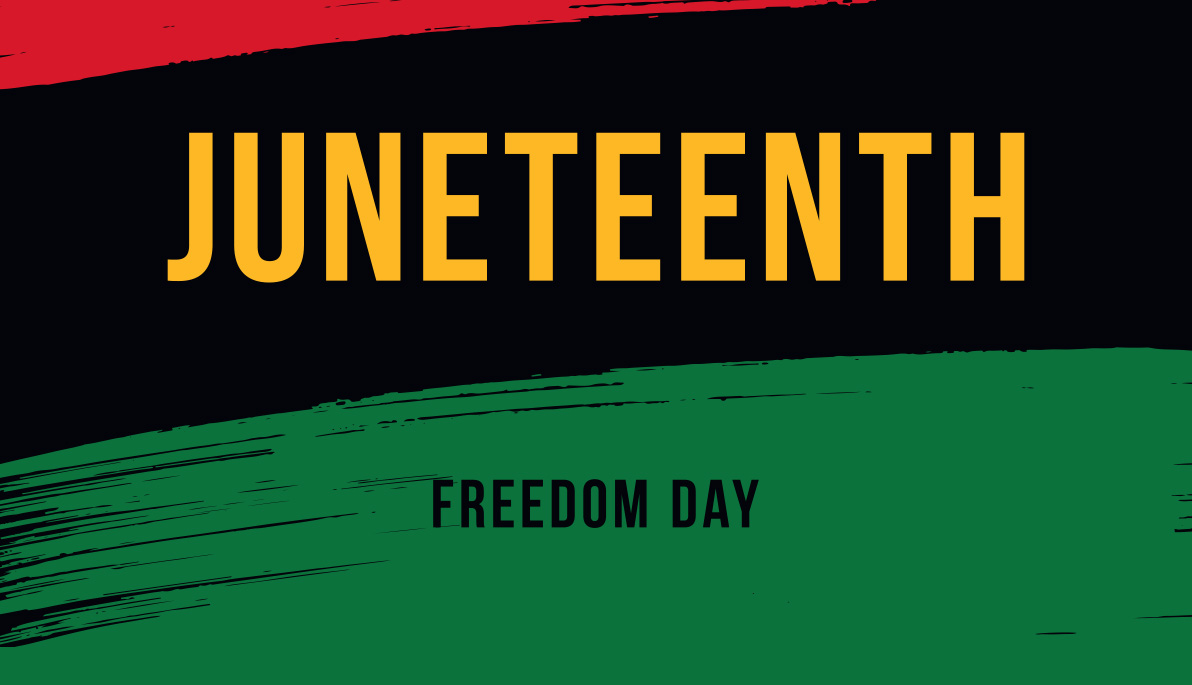News
Juneteenth: Moving Forward, With an Eye on the Past
June 15, 2022
Evette Allen Moore, Ph.D., assistant dean of diversity, equity, and inclusion, reflects on Juneteenth.
I remember one of the first times someone asked me about Juneteenth. As I learned more about the day and its significance, several emotions surfaced. I had so many questions: Why hadn’t I heard of this day? Why isn’t it celebrated widely? And how many others are ignorant to this very historic and significant day for African Americans in the United States?
Juneteenth, or June 19, marks the date when enslaved African Americans in Galveston, Texas, learned about the Emancipation Proclamation. Federal troops arrived there on this day in 1865; however, the Emancipation Proclamation was issued in 1863 (Nix, 2021). Thus, emancipation did not happen instantly for all. Juneteenth, while a celebration, is another reminder of the long road to freedom for African Americans.
“Jubilee Day” celebrations of Juneteenth date to as early as 1866 (Nix, 2021). Over the years, people have celebrated in many ways. For me, the day commemorates freedom and highlights Black history, struggle, achievement, education, community, and activism. Freedom is certainly a thing to celebrate, and one can also observe the struggle that occurred to achieve such freedom. Juneteenth reminds me of the Sankofa, a mythical bird facing forward with its head looking back over its shoulder. The bird symbolizes how we can move forward but keep an eye on the past so as not to forget or repeat it.
Juneteenth prompts us to remember the greatness of African Americans. On this day, we can celebrate the inventions and contributions people achieved while enslaved, but also the inventions and achievements that continue to come from African American individuals. Juneteenth prompts us to look at how education was not always granted to our African American ancestors, yet many went against the grain and learned anyway. On this day, we can celebrate the lengths we have reached in education and acknowledge the need for continued work on equity. Juneteenth prompts us to celebrate a community of people that did not and do not give up easily. On this day, may we be reminded of how we can support Black-owned businesses, for example, to acknowledge the years of denied access and honor the meaning of the day. Juneteenth prompts us to continue to stand up and stand firm for what is right. On this day, we continue to call for equitable treatment, policies, and practices for African Americans in healthcare, education, and everywhere.
Just last year, in 2021, Juneteenth became an official federal holiday. I am encouraged that my questions posed at the beginning of this piece will begin to be addressed. That now, more people will learn of the significance of this day and acknowledge African Americans’ struggles while celebrating their achievements. Juneteenth is a great day to begin celebrations and conversations, but attention to the unique experiences of African Americans in the United States should not stop there. There is still more to be done: more attention to inequitable healthcare practices, inequitable education policies, inequitable treatment in housing, financial resources, and more. As you celebrate Juneteenth this year, ask yourself how you are honoring the legacy and theme of freedom for African Americans while you are home, with friends, at work, and in your daily life. I challenge everyone to not only engage in the “fun stuff” on this day, but to take time to reflect on the struggle and efforts of African Americans to press toward freedom, and to reflect on what you and your circle can do to continue the legacy and theme of freedom for African Americans.




